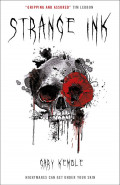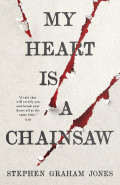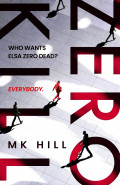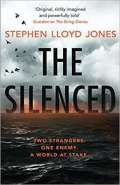System Preference
By Ugo Bienvenu
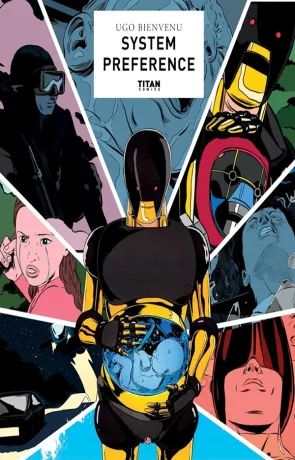
- System Preference
-
Author: Ugo Bienvenu
-
Publisher: Titan Comics
- ISBN: 9781806180271
- Published: September 2025
- Pages: 174
- Format reviewed: Hardback
- Review date: 23/09/2025
- Language: English
As a Librarian I deal regularly with some of the topics raised in Ugo Bienvenu’s System Preference. I do not have firsthand experience of a robot bringing up my children, but I do know about data; what needs to be stored and what needs to be deleted. Do we just keep it all in the hopes that we can store for infinity, or will there be a day that we need to start deleting information to make space for more? Who decides what is saved? Old minutes from meetings in the 00s, financial records for a local council, the complete works of William Shakespeare?
In the near future AI and social media have continued to expand to the point that they dominate data storage to the point where government agencies are required to permanently delete files from their archives to make space. The task of archivists is to highlight and argue for given data. Rather than follow orders and delete the collected works of dead artists, one archivist has been stealing the data and storing it within the memory of his house robot, who is carrying his unborn child to term. When the authorities discover that someone is stealing data, the archivist faces 30 years in prison and must decide what is best for him and his family.
As soon as you open the pages of System you are transported to a science fiction world that reminds you of the films of the late 60s and 70s. The aesthetic is pleasing but also informs the type of science fiction this is; intelligent and unwilling to spoon feed the reader. As homage, Bienvenu even uses 2001: A Space Odyssey as a key story point. Can the archivist bring himself to delete the film, book and all the works around this seminal work?
There are several themes that play out within the pages of this graphic novel. As an archivist myself, I was drawn to the idea of what data needs to be kept and what needs to be sacrificed. Even today space is required either in the cloud or on physical shelves. It takes a balance of reason and compassion to make a library’s collection work. It is perhaps this reason that the archivist within these pages loses sight of, willing to sacrifice the happiness and future of his family for art.
The book plays out in two acts. The second half progresses the story in a new direction and focuses more on the robot that contains the complete works of countless artists. Here the book discusses how art should be passed onto future generations. Should we force feed the children the art that we think is essential, or let them find their own? If no one is interested in the art, should it be allowed to die, be deleted? There are many of Shakespeare’s contemporaries whose names have been forgotten to history. Are we worse off for this? Do we really need to save every online rant and noodling that clutters up today’s online world?
I love the science fiction of ideas and for its brief 176 pages, System poses more questions than most epic space operas. It is a glorious book to look at, the illustrations are wonderful and the colouring is perfect, evoking a brightness, but also a sense of vintage science fiction. I have thought about some of the issues in System several times already and ranted to my colleagues about it, the sign of an exceptionally good book, worth reading.
Written on 23rd September 2025 by Sam Tyler .




